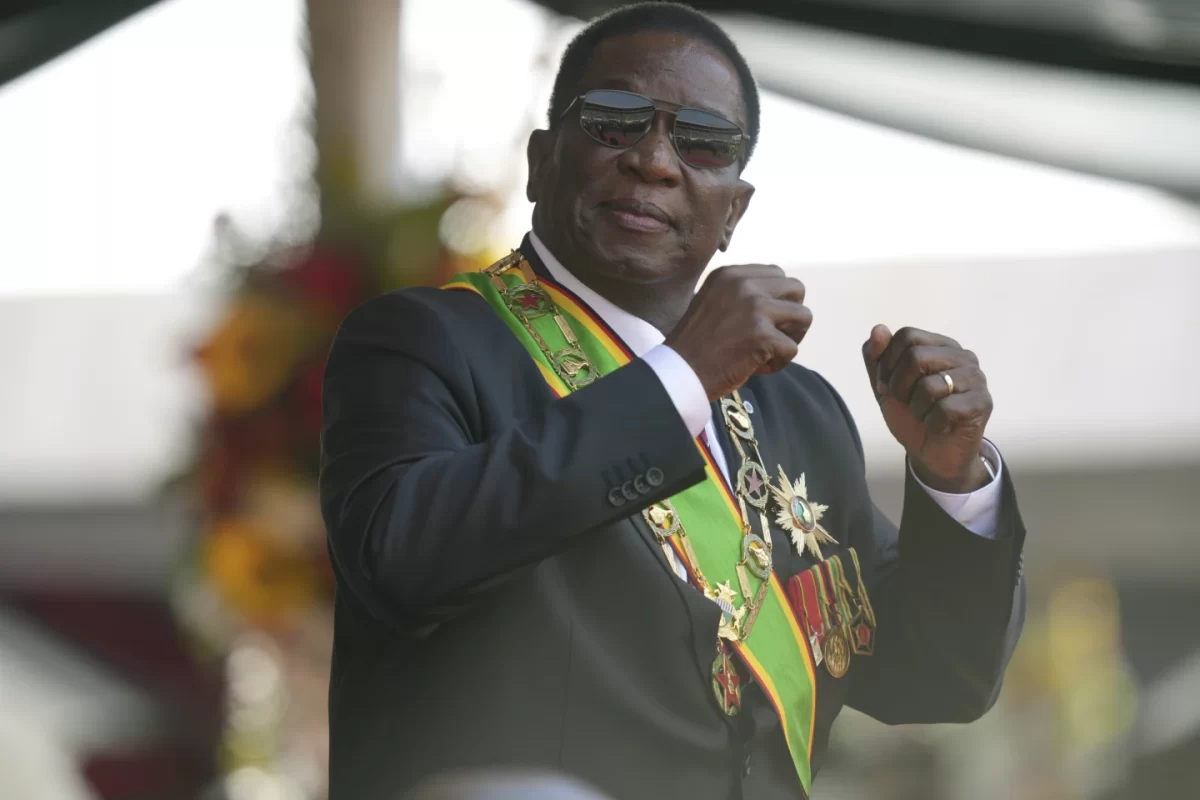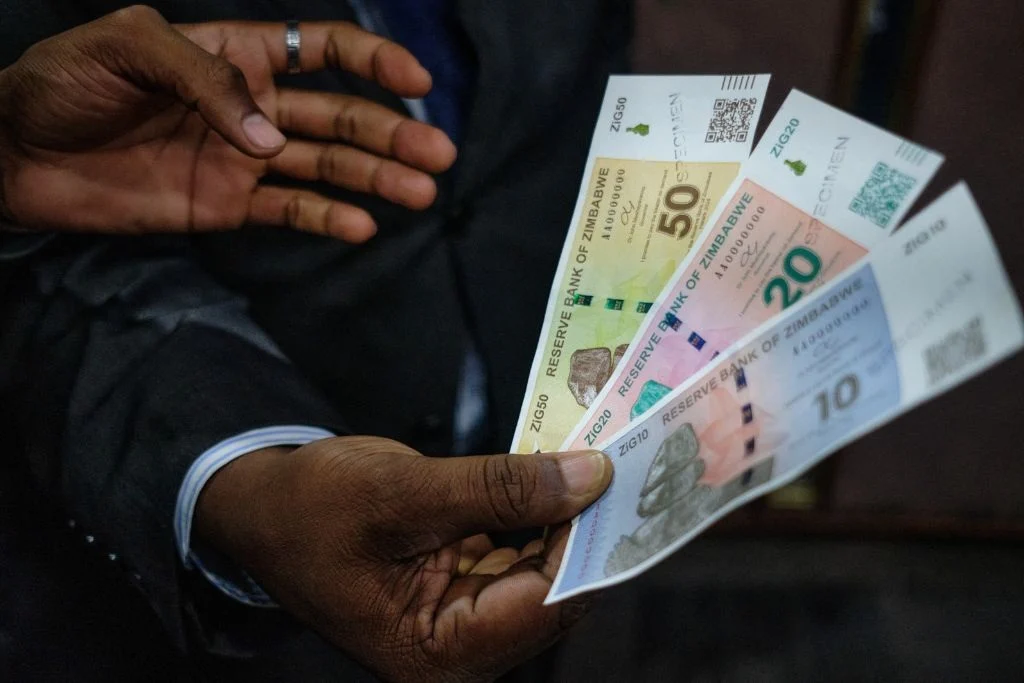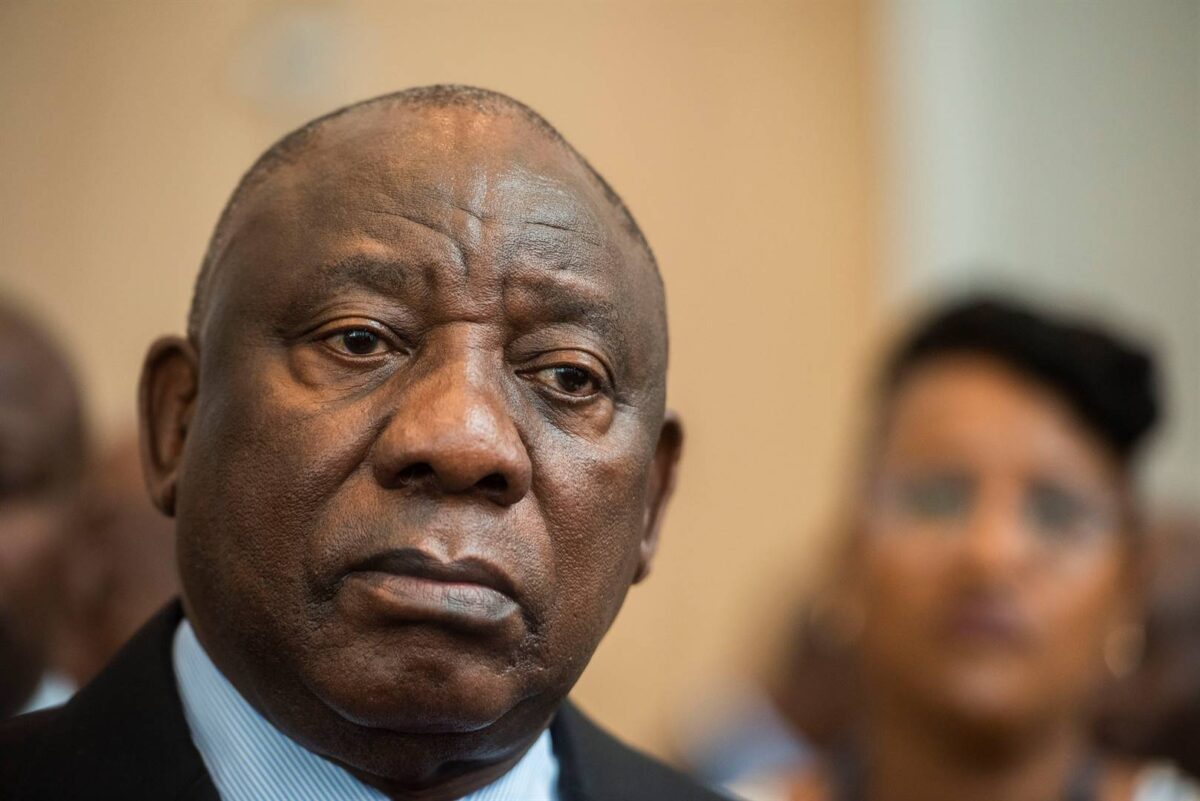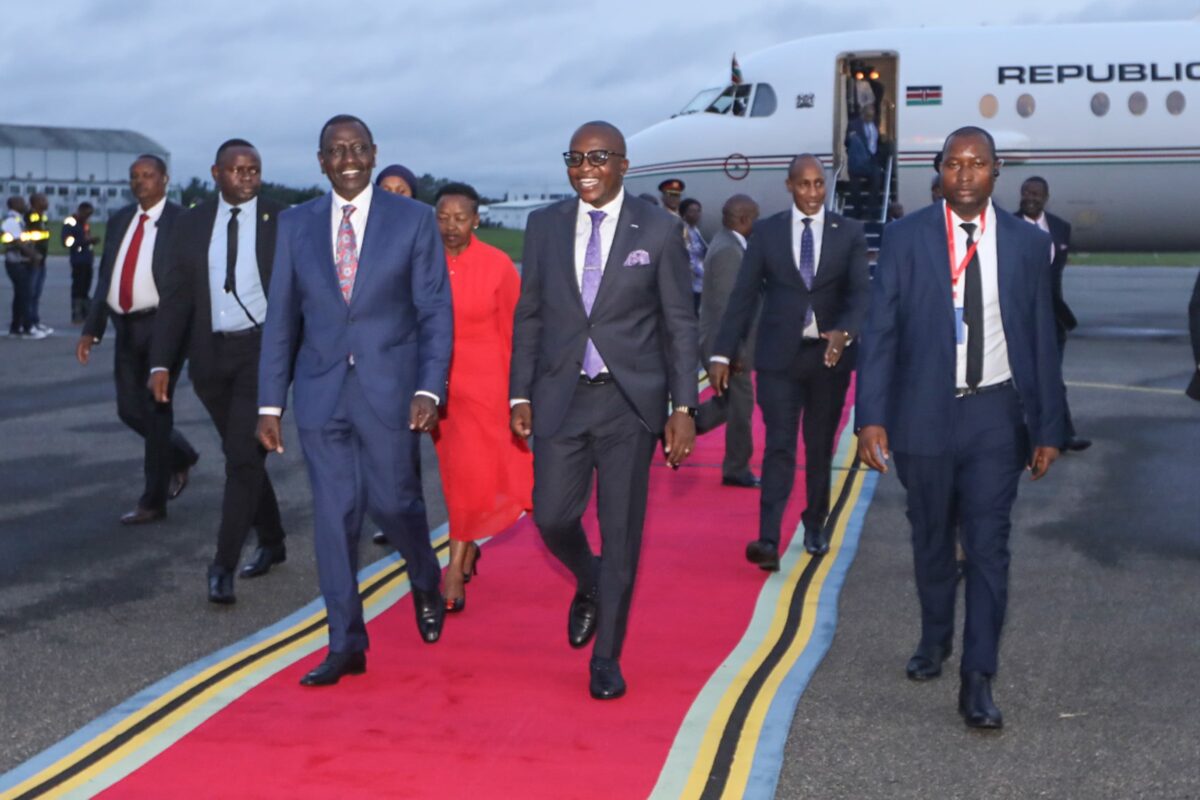The origins of Zimbabwe’s sovereign wealth fund can be traced back to a mining sector policy study conducted in 2012 that recommended the establishment of the fund to drive long-term investment leveraging on mining, natural and other resources that would anchor inclusive economic growth and development.
Zimbabwe is reported to hold the largest lithium deposits in Africa and the fifth-largest in the world. The country is also home to the world’s third-largest platinum deposits, along with large deposits of other high-value mineral resources like gold, chrome, coal and diamonds.
Pursuant to the recommendation, in 2014, Zimbabwe’s parliament created the Sovereign Wealth Fund of Zimbabwe whose operations fell under the Sovereign Wealth Fund of Zimbabwe Act. The stated purpose of the fund was to make secure investments for the benefit and enjoyment of future generations of Zimbabweans, to support the development objectives of the government including its long-term economic and social development, to support fiscal or macro-economic stabilisation and to supplement government revenue.
Despite its creation in 2014, the Sovereign Wealth Fund of Zimbabwe was dormant and seems only to have become somewhat operational under the tenure of Mnangagwa.
The establishment of the fund aligns with global trends where sovereign wealth funds are expanding rapidly in many parts of the world and becoming a major force in global capital markets. Run properly, sovereign wealth funds can leverage a nation’s natural and other resources to facilitate long term and large-scale investment. Run opaquely and corruptly, they can facilitate the large scale looting of a state’s natural resources and economic wealth.
What is a sovereign wealth fund?
A sovereign wealth fund is a state-owned investment fund comprised of money generated by the government through, for example, surplus reserves from state-owned natural resource revenues, trade surpluses, bank reserves that accumulate from budgeting excesses, foreign currency operations or money that accrues from privatisation projects.
Because sovereign wealth funds are created ostensibly to secure investments and safeguard natural resources for the benefit of future generations citizens, their conduct and operation call for greater scrutiny and the creation of strong checks and balances to ensure sound corporate governance and avoid fund mismanagement, looting and abuse.
Sound corporate governance is arguably the most crucial aspect to the development of robust investment strategies for sovereign wealth funds. Establishing clear independence is a prerequisite in order to avoid political interference. There can be no doubt that a lack of sound corporate governance and political interference will erode a fund’s ability to effectively achieve its key economic objectives, particularly the long-term protection of investments for the benefit of citizens of future generations.
Recent Legal Developments
Renaming of the fund
On September 19, 2023, Mnangagwa controversially promulgated Statutory Instrument 156 of 2023 (SI 156/2003) which changed the name of the Sovereign Wealth Fund of Zimbabwe to the Mutapa Investment Fund. No official reasons have been given for the renaming of the fund. However, the effect of the name change is to make it not readily discernible to a foreign entity that they are dealing with a sovereign wealth fund as opposed to a private investment fund.
Mnangagwa’s unfettered power to appoint fund board
SI 156/2003 gives Mnangagwa the unfettered power to appoint the Chief Executive Officer, the Chief Investment Officer and all eight members of the Mutapa Investment Fund Board. Although he has to consult the minister of finance, he is not bound by any of the minister’s recommendations. Prior to the amendment, the minister of finance appointed the sovereign wealth fund board members.
This provision is concerning in light of recent appointments by Mnangagwa to cabinet and other public posts which have been criticised for breaching sound corporate governance principles and being underpinned in some instances by nepotism. The lack of independence of the fund and the limited (if non-existent) checks and balances on an already powerful executive head increase the potential for looting and abuse of state resources.
No more reporting to parliament
Before the amendment, the Sovereign Wealth Fund Board had an obligation to make quarterly reports to the minister of finance who was equally obliged to table the fund’s reports before parliament. However, SI 156/2003 has taken away the obligation to table the board’s reports before parliament. The board only tables reports to the president and the minister of finance. This removes all pretence of public scrutiny over the fund’s operations and investments.
The scope for parliamentary oversight of the fund’s investments and operations, which is an essential element of sound public financial management, has also been severely curtailed. The risk is that looting and abuse of the fund’s assets and resources will be hidden from public scrutiny.
Government shares in key companies now vest in Mutapa Fund
The shares held by the government in a number of gazetted companies now vest in the Mutapa Fund. There is no need for any formal share transfer. The transfer is “by operation of law.” The company secretaries of the affected companies have 21 days to do the necessary company secretarial work to give expression to the new ownership structure.
Companies whose government shares will now fall under the Mutapa Investment fund include Defold Mine, ZUPCO, Kuvimba, Silo Investments (GMB commercial arm), the National Oil Company of Zimbabwe, the Cold Storage Commission, Petrotrade, POSB, Netone Cellular, the National Railways of Zimbabwe Holdings and NRZ Ltd, TelOne, ARDA Seeds, Zimbabwe Power Company, Powertel, Allied Timbers, Telecel Zimbabwe, Air Zimbabwe, Industrial Development Corporation, Cottco, AFC Limited and Hwange Colliery. Mnangagwa has the unfettered power to add and remove companies to the list as and when he pleases.
The effect of putting all the companies under one roof is to create a super-parastatal whose conduct and operations are not subject to public procurement laws, parliamentary scrutiny or disclosure to the public. This offends the stated objective of the fund which is to preserve national assets for the benefit of future generations.
Employees of the fund sworn to secrecy
SI 156/2003 prohibits members, employees or agents of the fund from disclosing any information relating to the affairs of the fund. This further impedes access to information and undermines transparency and accountability over the fund’s investments and operations.
Free and unrestricted transfer and externalisation of foreign currency
SI 156/2003 allows the fund to transfer forex pertaining to investments made by the fund into and out of Zimbabwe without restriction or delay. This exemption is arbitrary and capricious in light of Zimbabwe’s stringent exchange control laws and currency regulation that apply to all other sectors, especially the private sector. The potential for abuse and externalisation of forex through this vehicle looms large.
Why must you be worried?
Recent amendments to the Sovereign Wealth Fund of Zimbabwe Act by Mnangagwa ought to concern all progressive Zimbabweans because they are unconstitutional, violate mandatory principles of public financial management – particularly transparency and accountability and leave the door wide open for mass looting of state assets and natural resources. This is the opposite of the stated objective of Zimbabwe’s Sovereign Wealth Fund.
Unconstitutionality
The most concerning feature of the recent purported amendment to the Sovereign Wealth Fund of Zimbabwe Act by Mnangagwa is that it is unconstitutional in a number of respects. As a starting point, the amendment was introduced by way of a statutory instrument, which violates section 134 of the constitution. The said section prohibits the enactment, amendment or repeal of legislation by way of a statutory instrument. Only Parliament can make, change or remove laws.
It is no answer to this charge that the statutory instrument was gazetted purportedly under the Presidential Powers (Temporary Measures) Act – this statute itself offends section 134 of the constitution. In the event of a conflict, the constitution is supreme. It follows that Mnangagwa’s statutory instrument that changed the Sovereign Wealth Fund of Zimbabwe was invalid, ultra vires the constitution and thus illegal as a matter of a law. It additionally breaches the section 68 obligation of all administrative authorities to act lawfully, reasonably and fairly.
Lack of transparency
Mnangagwa’s illegal amendment to the Sovereign Wealth Fund of Zimbabwe Act through SI 156 of 2023 further violates the constitutional principles of public financial management enshrined in section 298 of the constitution. Section 298 states that in all aspects of public finance, of which the management and conduct of a state-owned and controlled fund is one, there must be transparency and accountability.
This provision was violated when Mutapa Investment Fund from the purview of the Public Procurement and Disposal of Public Assets Act through the promulgation of General Notice 1546 of 2003. No explanation has been given, nor can a valid one exist, as to why a sovereign wealth fund would be exempt from public procurement laws that exist to ensure that public procurement and disposal of public assets are effected in a manner that is transparent, fair, honest, cost-effective and competitive.
Another looting gimmick?
The unconstitutional exemption of the fund from the mandatory provisions of public procurement legislation and the speed with which the illegal amendments were enacted have given rise to the criticism that the illegal amendments are designed to facilitate looting and to evade public scrutiny of the fund’s operations, investments and the sale and disposal of its assets. There is a real risk and possibility that the assets and entities held by the Fund will be sold without the benefit of public or parliamentary scrutiny or the necessary checks and balances necessary to ensure sound corporate governance and prevent abuse.
Mnangagwa’s unconstitutional changes to the legal framework of Zimbabwe’s Sovereign Wealth Fund signal a new era of predatory looting of state assets and natural resources by Mnangagwa and the illegal “Mutapa Mafia” he will personally appoint. Zimbabwe, a country reeling under 49 percent extreme poverty, triple digit hyperinflation and an annual loss of US$2,2 billion to illicit financial flows cannot afford for its resources to bleed further.
It behoves all institutions of the state with a mandate to oversee corruption and poor public management including the auditor general, parliament, the judiciary, the media and the general citizenry to speak out against this illegal conduct and ensure that this latest unconstitutional enactment is reversed. If this is not done, billions in state resources will be lost once again without any accountability or disclosure.
Fadzayi Mahere is the Member of Parliament for Harare West representing the Citizens Coalition for Change















